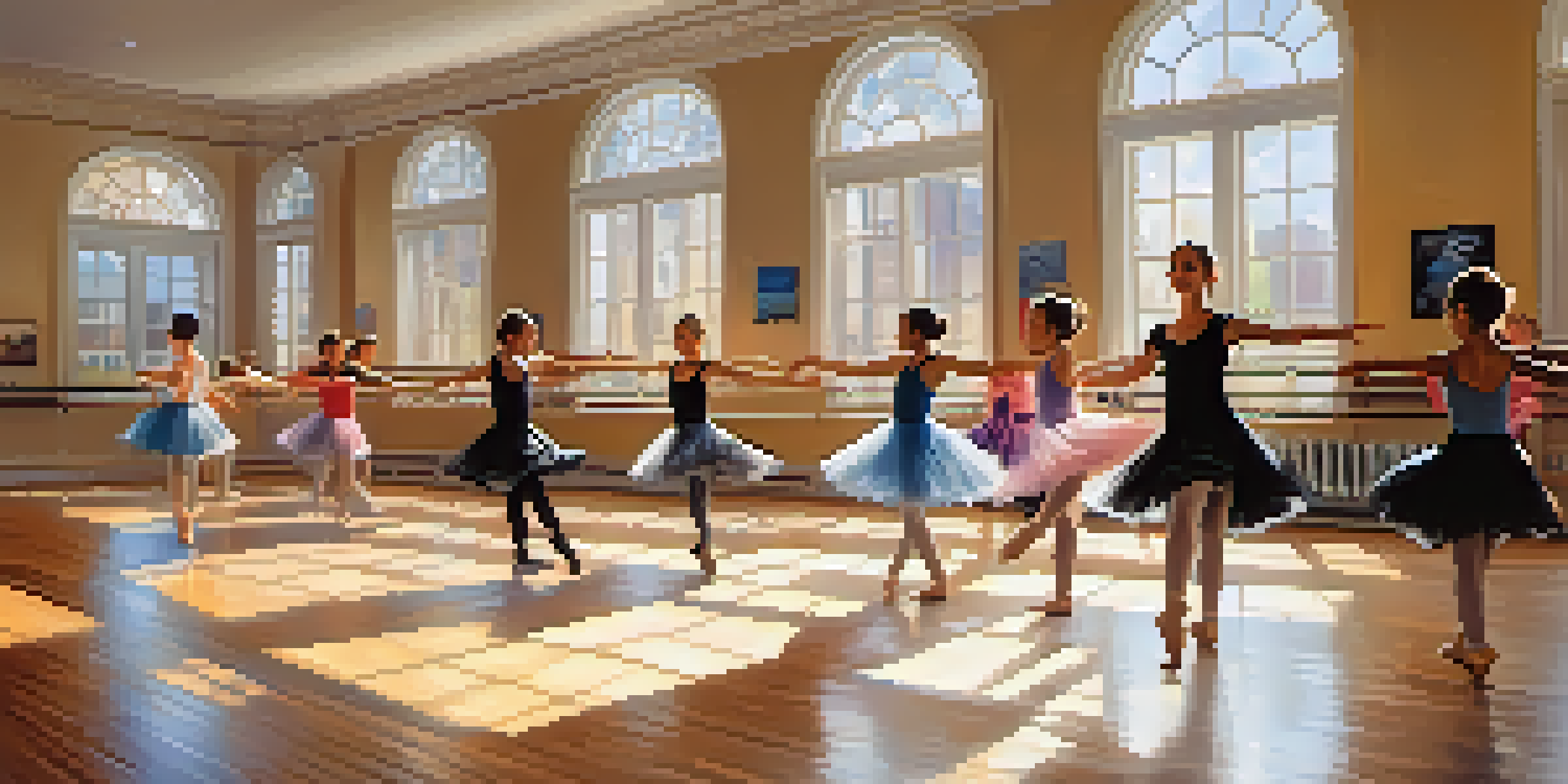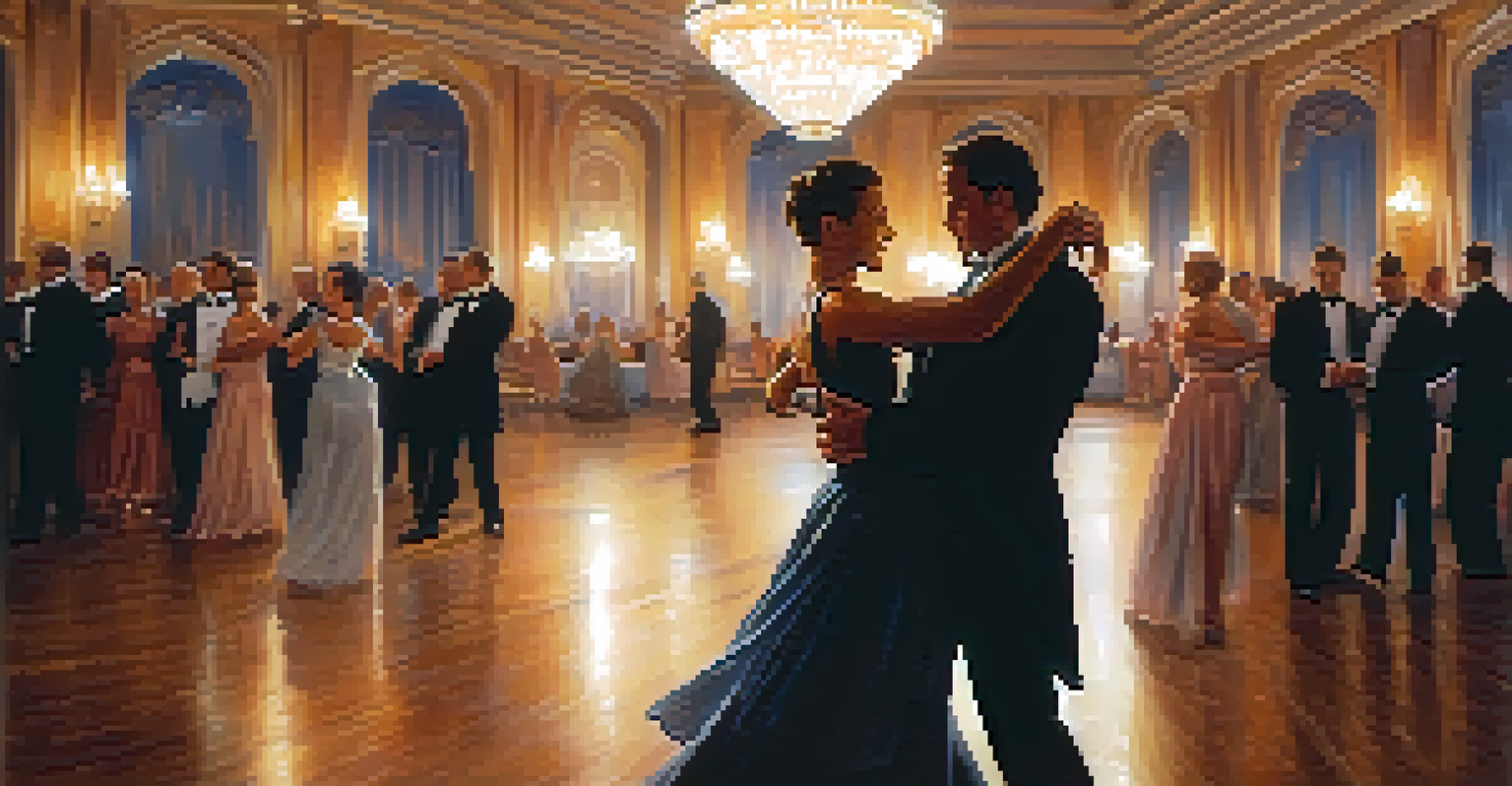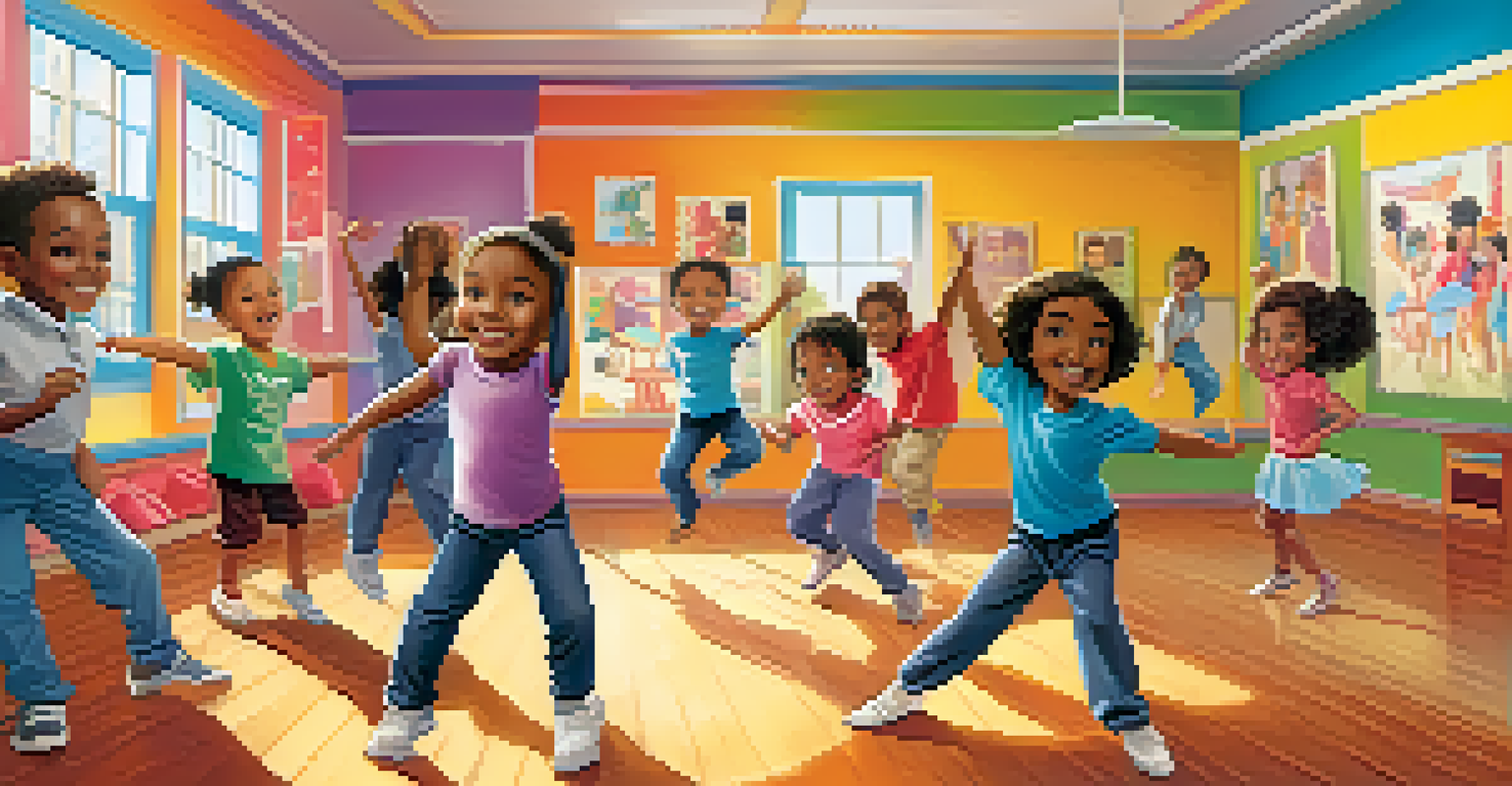The Effects of Dance on Memory Retention Across Age Groups

Understanding Memory Retention and Its Importance
Memory retention refers to our ability to store and recall information over time. It's crucial for learning, decision-making, and even navigating daily life. As we age, the processes involved in memory retention can change, making some strategies more effective for different age groups.
Dance is the hidden language of the soul.
For instance, children often have remarkable memory capabilities, but as we grow older, factors like stress and cognitive decline can hinder our memory. Thus, understanding how to enhance memory retention is essential for maintaining cognitive health across all ages.
This is where activities like dance come into play. Engaging in dance not only promotes physical health but also stimulates the brain, potentially boosting memory retention in a fun and social way.
Dance as a Cognitive Exercise
Dance is not just about rhythm and movement; it's a complex cognitive task that requires coordination, memory, and spatial awareness. When we learn dance steps, we engage various brain functions, making it a unique form of cognitive exercise. This exercise can enhance our overall brain health and memory retention.

For example, learning a new dance routine involves remembering sequences and patterns, which can strengthen neural connections in the brain. This is particularly beneficial for older adults, who may struggle with memory due to aging.
Dance Enhances Memory Retention
Engaging in dance serves as a cognitive exercise that boosts memory retention through coordination and pattern recognition.
Moreover, studies have shown that dance can increase levels of brain-derived neurotrophic factor (BDNF), a protein that supports neuron growth and resilience, further aiding memory retention across age groups.
The Role of Social Interaction in Dance
Dance often involves social interaction, whether in a class or a social setting. This interaction can enhance memory retention, as social engagement is known to boost cognitive functions. When we dance with others, we share experiences, which can create lasting memories.
Memory is the treasure house of the mind wherein the monuments thereof are kept and preserved.
For example, learning a dance with friends not only makes the experience enjoyable but also reinforces memory through shared practice and repetition. These social connections can be particularly beneficial for older adults, combating feelings of isolation, which can negatively impact memory.
By participating in dance, individuals of all ages can strengthen their social bonds while simultaneously enhancing their memory retention in a supportive environment.
Dance and Emotional Well-Being
Engaging in dance can significantly impact emotional well-being, which in turn affects memory retention. Dance releases endorphins, the 'feel-good' hormones, leading to a more positive mood and reduced stress levels. When we feel good emotionally, our ability to remember information improves.
You might notice that when you're happy or relaxed, recalling specific memories or learning new information feels much easier. This is not just a coincidence; it's linked to how our brains process and store memories during times of emotional stability.
Social Interaction Boosts Memory
Dancing with others fosters social connections, which enhance memory retention by sharing experiences and creating lasting memories.
Therefore, incorporating dance into our routine not only benefits our physical health but also enhances our emotional state, providing a dual benefit for memory retention across various age groups.
Different Dance Styles and Their Effects on Memory
Not all dance styles impact memory retention in the same way. For instance, styles like ballet or ballroom require the dancer to remember intricate patterns and timing, which can be particularly beneficial for cognitive function. Conversely, freestyle dance may enhance creativity and emotional expression, contributing to different aspects of memory.
Research suggests that structured dance forms may be more effective in improving memory due to their repetitive and systematic nature. This repetition helps reinforce new information, making it easier to recall later.
Choosing a dance style that resonates with the individual can maximize these benefits, making it essential to consider personal preferences when exploring dance as a memory enhancement tool.
Dance and Its Impact on Children’s Memory Development
For children, dance can serve as a powerful tool for memory development. Engaging in dance encourages not just physical movement but also cognitive engagement, helping children learn new concepts through rhythm and movement. This kinesthetic learning can significantly enhance their ability to retain information.
In school settings, incorporating dance into the curriculum has been shown to improve not only memory but also overall academic performance. Children often find it easier to remember information when it's associated with a physical activity, making learning more enjoyable.
Emotional Well-Being Supports Memory
The positive emotional effects of dance, such as increased endorphin levels, improve our ability to recall information and enhance memory retention.
Thus, introducing dance at a young age can lay a strong foundation for memory retention that benefits children throughout their educational journeys and beyond.
Conclusion: The Lifelong Benefits of Dance on Memory
In conclusion, dance offers a multitude of benefits for memory retention across all age groups. It serves as a cognitive exercise, promotes social interaction, enhances emotional well-being, and can even vary in impact depending on the style. By integrating dance into our lives, we can harness its full potential to support our memory health.
Whether it's through structured classes or casual social dancing, encouraging people of all ages to participate in dance can lead to improved memory and overall cognitive health. The joy of dance not only enriches our lives but also strengthens our minds.

So, next time you hear your favorite song, don’t hesitate to get up and dance. You’ll not only enjoy yourself but also contribute to a sharper memory for years to come.